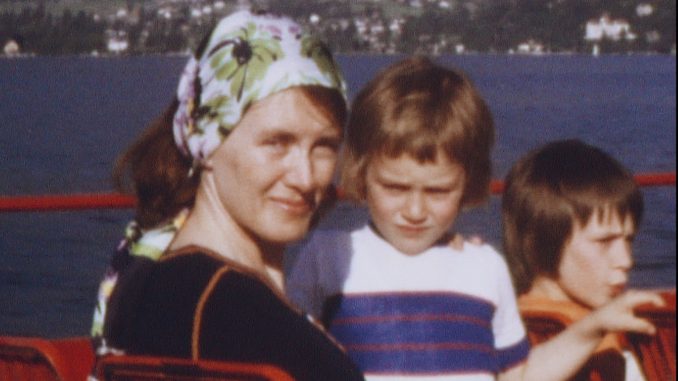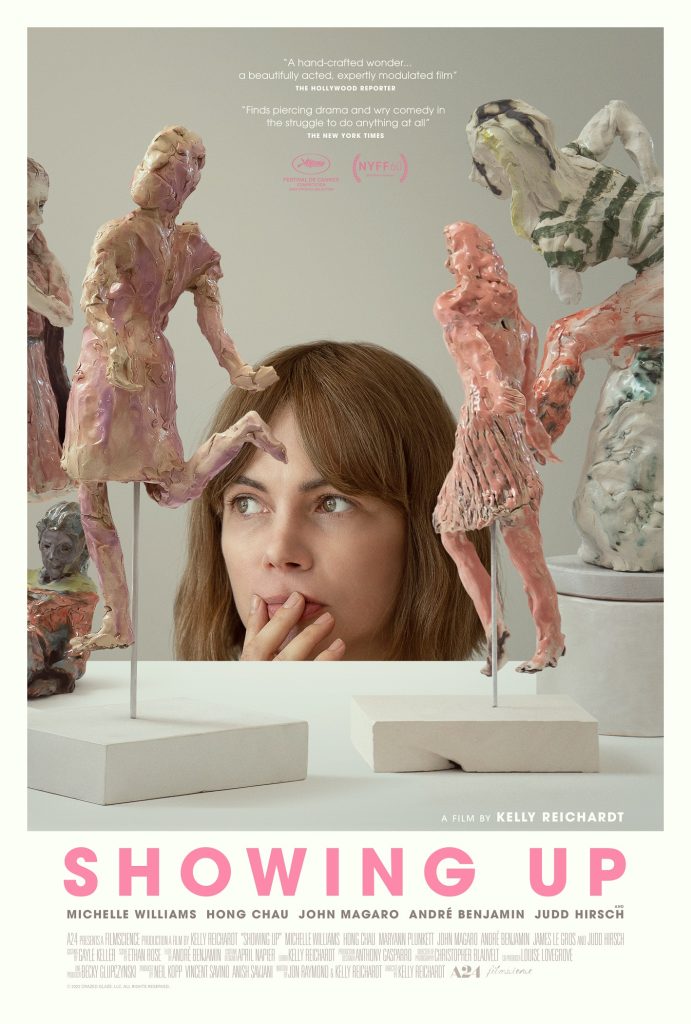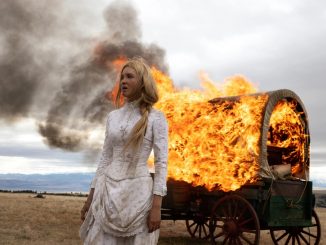
The Super 8 Years: With her son David Ernaux-Briot as co-director, the Nobel Prize-winning French novelist Annie Ernaux has fashioned an unflinching, remarkably fresh filmed memoir out of her family’s home movies from 1972-1981, the period of her first marriage and her first literary success.
Visually, it’s 70 minutes of lo-fi looking Super-8 images in skillfully edited form. What gives it all exceptional power and interest is Ernaux’s voice-over narration, which is ironic, incisive and lucid—in emotion and intellect alike.
Cinema’s First Nasty Women is a four-DVD box set of beautifully restored movies from the silent film era (1900-1927), which challenge gender stereotypes and generally celebrate strong women in an array of comedy, drama, romance and action movies. The overall title may suggest a flip of the bird to the Trumpian notion of a “nasty woman,” but the collection as a whole serves as a rich and fascinating corrective to several cultural and historical falsehoods. Each of the four discs has a specific focus: Disastrous Domestics & Anarchic Tomboys; Queens of Destruction; Gender Rebels; and Female Tricksters.
Particular highlights include the work of Native American actors Minnie Devereaux and Lilian St. Cyr (aka Red Wing). St. Cyr’s performance and stunt work in The Red Girl and the Child suggest she’s the equal of Tom Mix, the top western action star of the era. A Range Romance (1911) is teased in the notes as “a Brokeback Mountain for the silent era.” Legendary actress/impresario Texas Guinan has the “hero” role in The Night Rider (1920). In The Snowbird (1916), a film by Chickasaw actor/director Edwin Carewe, a young woman disguised as a boy travels to the Hudson’s Bay region to retrieve an important document and gets entangled in a relationship that is both ironic and romantic.
Showing Up: The new film by Kelly Reichardt (Wendy & Lucy, First Cow, Meek’s Cutoff) follows an aspiring artist (Michelle Williams) through her daily encounters with domestic life and the local art scene in present-day Portland. As with Reichardt’s previous films, there is no hugely dramatic plot, but Showing Up builds growing interest and unexpected emotion by way of careful, kindly attention to the everyday lives of a diverse group of characters—family, friends, colleagues and the artist herself.

Williams, instantly recognizable but always invested in the role of the moment, is very good once again. And a fine supporting cast follows suit—Judd Hirsch and Mary Ann Plunkett as the artist’s divorced parents, John Magaro as her damaged “genius” of a brother, and Hong Chau and Andre 3000 as fellow artists. It’s a film about creativity, family, community, and recognizing the moments of grace in otherwise imperfect lives.
Private-eye tales have loomed large among recent viewing pleasures. I’m thinking in particular of Marlowe, with Liam Neeson, but also of season two of the Perry Mason prequel on HBO and all fifteen episodes of the British-based C.B. Strike series, also on HBO.
Marlowe is based on one of John Banville’s latter-day extensions of Raymond Chandler’s classic Philip Marlowe novels (The Big Sleep, etc.). It’s a somber, richly fleshed-out mystery drama and period-piece (with Neeson in the title role), and somehow it hasn’t gotten much enthusiasm from the critics, even though it’s a complex story well-told with a large, excellent supporting cast (including Jessica Lange, Diane Kruger, Alan Cumming and Danny Huston). No less significantly, the director is Irish auteur Neil Jordan (The Crying Game, Michael Collins), and several key characters (including Marlowe) are Southern Californians with Irish backgrounds.
In its second season, the Perry Mason prequel continues to thrive with characters and drama that echo Chandler’s Marlowe stories rather than the Perry Mason of TV fame. The Della Street character (an excellent Juliet Rylance) becomes even more central to action and drama alike, as does the reinvented Paul Drake character (Chris Chalk). And there’s a very lively dozen or so secondary characters (played by Hope Davis, Gretchen Mol, Robert Patrick, Stephen Root, LiliTaylor, John Lithgow, among others). And like Marlowe, the season’s episodes generate richly detailed picture of Southern California society in the era between World Wars I and II.
In C.B. Strike, the title character (a fine Tom Burke) is a damaged war vet and the alienated son of a celebrity musician. Over 15 episodes and five “seasons,” he’s struggling to stay in business, but keeps edging into major cases, especially with the help of a talented assistant (Halliday Grainger) who starts out as a mostly unpaid “intern.” Loaded with British acting talent, the series is based on mystery novels written by J.K. Rowling, under her “Robert Galbraith” nom de plume.




Be the first to comment